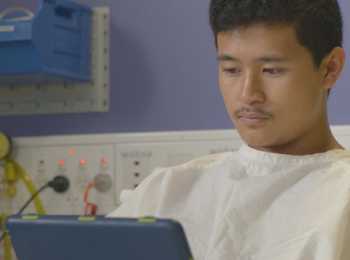Not all cancer types or treatments can affect your future fertility, so it’s very important to talk to your doctor as soon as you can to find out about the risks and preservation options available to you. This means you’ll have all the information you need to make decisions about protecting your fertility so you can start a family at a later date if you want to.
Read on to find out which cancer treatments can affect your fertility.
Chemotherapy
Although the most common form of treatment which is good at stopping cancer cells growing and multiplying, chemo can also affect normal, healthy cells in the process. This includes reproductive cells, which means your sperm or eggs, and the hormone producing cells around the eggs.
The extent of the damage is determined by a number of different factors, such as:
-
The drug type
-
Dosage
-
Combination of medications
-
Your age (related to eggs only)
Because the risk depends on all these different factors, it’s best to talk to your doctor about the potential effect of your treatment on your fertility and what you can do to preserve it.
Radiation therapy
Radiotherapy uses high energy x-rays, gamma rays or electrons to kill cancer cells in a specific part of the body. It creates shifts in the body’s cells that destroy the cells’ ability to grow and divide.
Radiotherapy only affects the cells and tissues within a specific area (unlike chemo, which affects the whole body). Normal, healthy cells are also better able to resist the radiation, which is why your body may recover from the effects of radiotherapy faster.
Radiation also kills rapidly dividing cells, such as reproductive cells, but is generally limited to those in a contained area. So it can impact your fertility if you have radiotherapy in that area.
The amount of damage that radiotherapy can do to your reproductive organs depends on:
-
The dosage
-
The number of treatments (called fractions) required
-
The field of radiation (area of your body)
-
Your age (related to ovaries only)
Bone Marrow Transplant (BMT) and Stem Cell Transplant (SCT)
Having a transplant means that you will be given high dose chemotherapy and/or total body irradiation. That means there is a significantly higher risk of infertility for the reasons explained for both treatments above.
Surgery
Having surgery to reproductive organs such as the ovaries, testes, uterus, fallopian tubes or cervix, or to the vagina or vulva, may affect your ability to have a child.
It’s best to talk to your doctor or someone in your Youth Cancer Services team about the impact of any surgery on your reproductive organs and to the organs in the surrounding areas, such as the prostate and bladder.
Hormone treatment (mainly for breast cancer)
For some cancers (such as breast cancer), anti-hormone therapy is a treatment. Some of the medications used will cause ovarian suppression (prevent your ovaries producing oestrogen), but this is usually only temporary and fertility will return once you stop taking the medication.


















